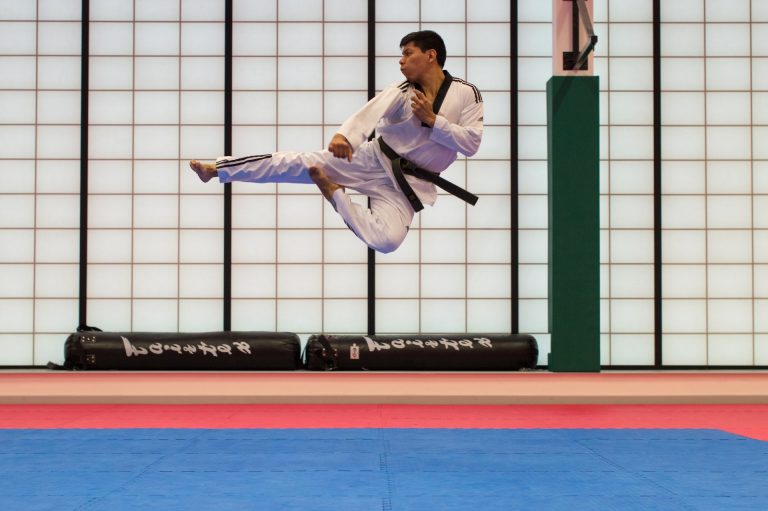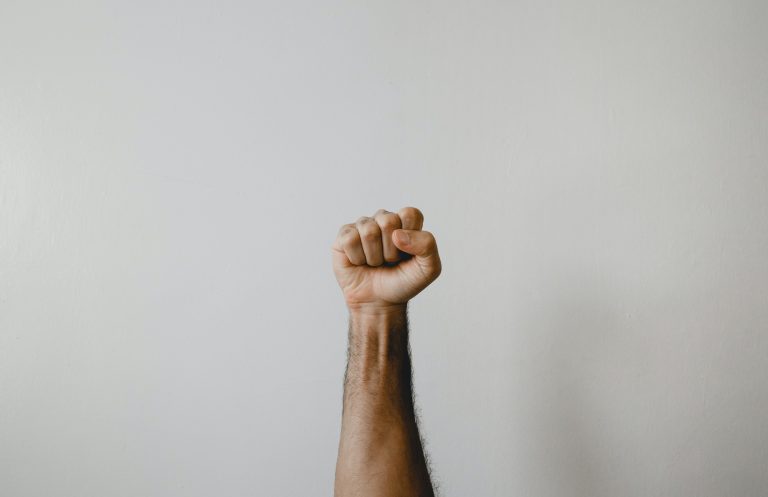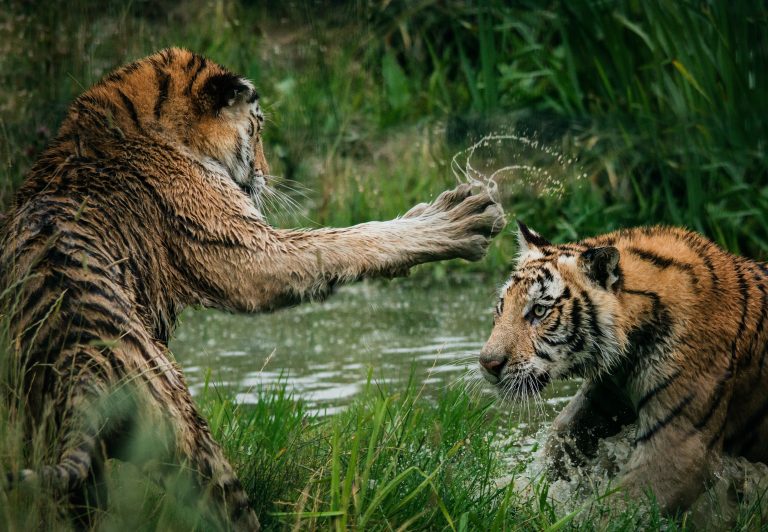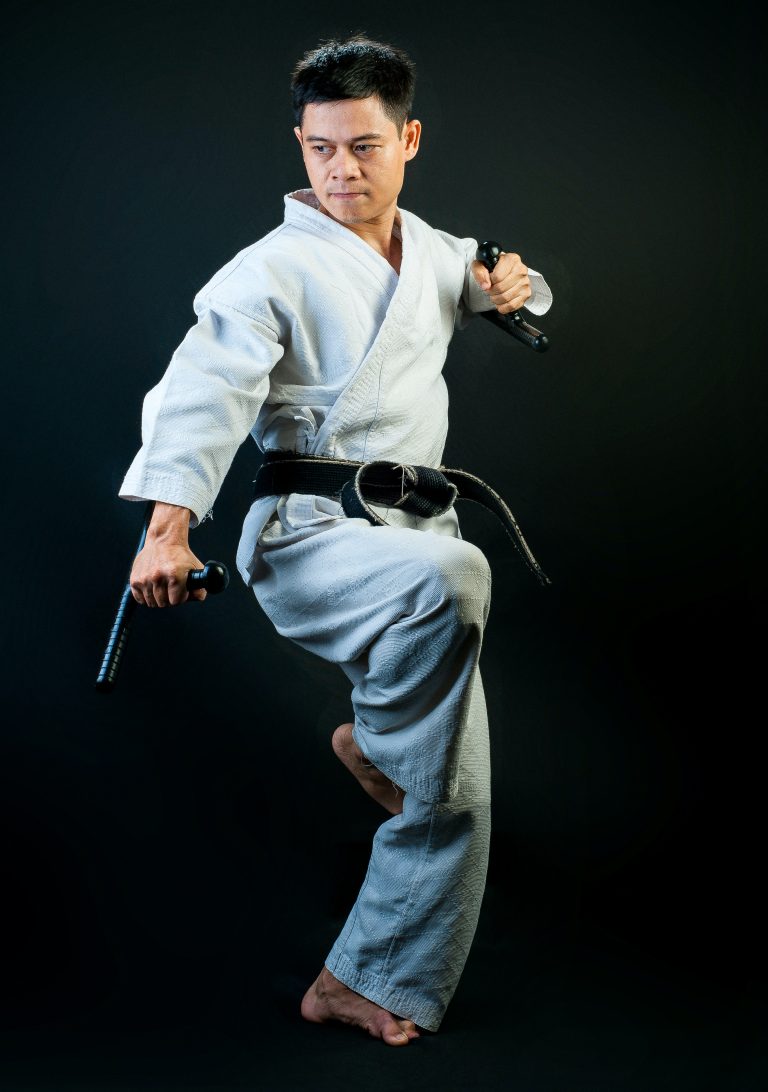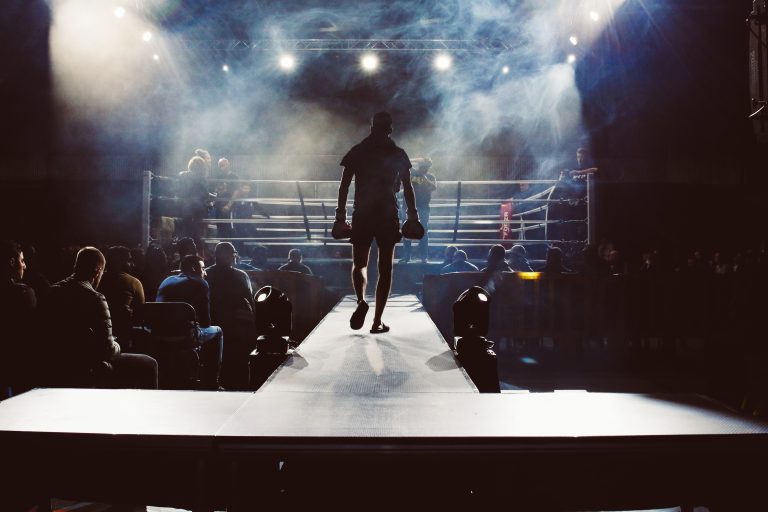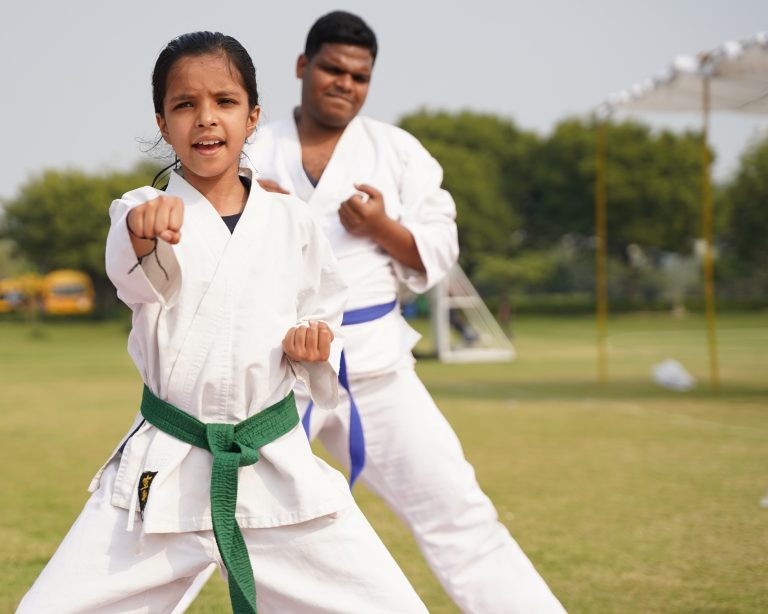The Importance of Self-Confidence in Karate: How You Can Build It
Self-confidence is a trait that is highly valued in karate. In fact, it is essential for any karate practitioner to possess a certain level of self-confidence in order to excel in this highly demanding martial art.
Karate requires practitioners to have a high degree of physical and mental strength, but even more important than these qualities is self-confidence. By definition, self-confidence is a person’s belief in their own abilities, qualities, and judgments. To become an effective martial artist, it is essential to develop self-confidence through consistent training and practice.
Here are some strategies for building self-confidence in karate:
1. Set achievable goals
Setting achievable goals is one of the most effective ways to build self-confidence. By setting specific, measurable, achievable, relevant, and time-bound (SMART) goals, you can create a roadmap for success. These goals can be anything from learning a new technique, winning a sparring match, or achieving a new rank. The key is to break down larger goals into smaller, more manageable increments, and celebrate each achievement along the way.
2. Challenge yourself
One of the best ways to build self-confidence is to step outside of your comfort zone and take on new challenges. Whether it’s trying a new technique, participating in tournaments, or joining a new karate dojo, taking risks and embracing new experiences can help you develop greater confidence in yourself and your abilities.
3. Focus on your strengths
Every karate practitioner has unique strengths and abilities that they can leverage to build self-confidence. Rather than focusing on your weaknesses, it’s important to identify and build upon your strengths. This can be anything from your physical abilities to your mental toughness, discipline, and focus. By recognizing and enhancing your strengths, you can become a more well-rounded, confident martial artist.
4. Seek feedback
Receiving feedback from your karate instructor and peers can be an effective way to build self-confidence. By soliciting feedback on your techniques, form, and overall performance, you can gain valuable insights into areas that need improvement and areas in which you excel. This feedback can help you focus your efforts and work towards greater mastery of the art.
5. Practice visualization techniques
Visualization is a technique that involves imagining yourself performing a certain activity or achieving a specific goal. Visualization can be a powerful tool for building self-confidence in karate, as it can help you mentally prepare for challenges and build greater confidence in your abilities. Take a few moments each day to visualize yourself performing your techniques flawlessly, winning competitions, or achieving your goals.
In conclusion, self-confidence is a crucial trait for success in karate. By setting achievable goals, challenging yourself, focusing on your strengths, seeking feedback, and practicing visualization techniques, you can build greater self-confidence and become a more skilled and effective martial artist.
The Importance of Self-Confidence in Karate: How You Can Build It
Karate is not just a fighting sport; it is a way of life that helps to strengthen both the body and mind. And one of the essential components of mastering karate is self-confidence. Karate training teaches individuals to believe in themselves and their abilities, which can be translated into other areas of life as well. In this blog post, we will discuss some Frequently Asked Questions about self-confidence in karate and how you can build it.
Q1. What is self-confidence, and why is it important in Karate?
Self-confidence is the belief in one’s abilities, qualities, and judgments. It is an integral part of karate training as it helps to build a positive attitude towards oneself and their capabilities. Confidence also helps you to overcome fear and anxiety by having a strong belief in your techniques and skills. It is crucial to have self-confidence in karate to perform better in tournaments or fights and to face any real-life situations with courage and poise.
Q2. How can you develop self-confidence in karate?
Self-confidence is not something that can be developed overnight. It requires consistent efforts and hard work. Here are some tips to help you develop self-confidence in karate:
1. Practice Consistently
Consistency is the key to success in karate. Regular practice will help you to master your techniques and build your confidence level. Practicing the basics repeatedly will help you to become more comfortable with your moves, making it easier to perform them in stressful situations.
2. Focus on Your Strengths
It is essential to focus on your strengths rather than weaknesses. By doing this, you build on your strengths and will gain more confidence in your abilities. When you focus on your strengths and push yourself to improve them, you build intrinsic motivation.
3. Set Realistic Goals
Setting achievable goals helps to build your confidence level as you have something to work towards. Make sure that your goals are specific, measurable, achievable, relevant, and time-bound (SMART). Celebrate even the smallest victories to help build your confidence.
4. Stay Positive
A positive attitude can make all the difference in building self-confidence. Avoid negative self-talk and constantly remind yourself of your strengths and accomplishments. Focus on things you can do instead of what you can’t do.
5. Practice Visualization
Visualization is a powerful tool for building confidence. Imagine yourself performing your techniques with grace and ease. Positively visualizing yourself is an excellent way to prepare mentally for competitions.
Q3. How can karate competition build self-confidence?
Competitions are a great way for karate students to build self-confidence. Competing challenges you to push past your comfort zone and overcome any fear or anxiety. The more you compete, the more comfortable and confident you will become.
In competition, you also get feedback from judges, spectators, and your opponent, which helps you to understand your weaknesses and strengths. Use this feedback to improve yourself and build your confidence level.
Q4. Any common mistakes that can impact self-confidence in Karate negatively?
There are a few common mistakes that karate practitioners make that may negatively impact their confidence level. These include:
1. Comparing Yourself to Others
Everyone progresses at a different pace, and comparing yourself to others can negatively affect your confidence levels. It is essential to focus on your growth and development.
2. Negative Self-Talk
Remember to be kind to yourself and avoid negative self-talk. Focus on the good things you are doing rather than the bad.
3. Rushing Through Your Techniques
Rushing through your techniques can lead to mistakes and negatively impact your confidence. It’s important to take your time, go slow, and practice your techniques with precision.
4. Not Celebrating Your Accomplishments
It is crucial to celebrate your accomplishments, no matter how small they might be. Celebrating is a great way to build your confidence levels and will help you push forward to achieve even more.
Q5. How does self-confidence help in real-life situations outside of Karate?
Karate is more than just a sport; it is a way of life. The self-confidence gained through karate training can help you in real-life situations outside of the dojo.
Whether it’s a presentation in front of a large audience or dealing with a difficult situation, self-confidence can help you face challenges with courage and poise.
It can also help in building better relationships as people are attracted to individuals who exude confidence.
Conclusion
Self-confidence is a vital component of karate training. It is something that can be developed over time with consistent practice and a positive mindset. Remember to focus on your strengths, set achievable goals, and celebrate your accomplishments, no matter how small they may be. By doing so, you will become a more confident and successful karate practitioner and person.
Inhaltsverzeichnis

